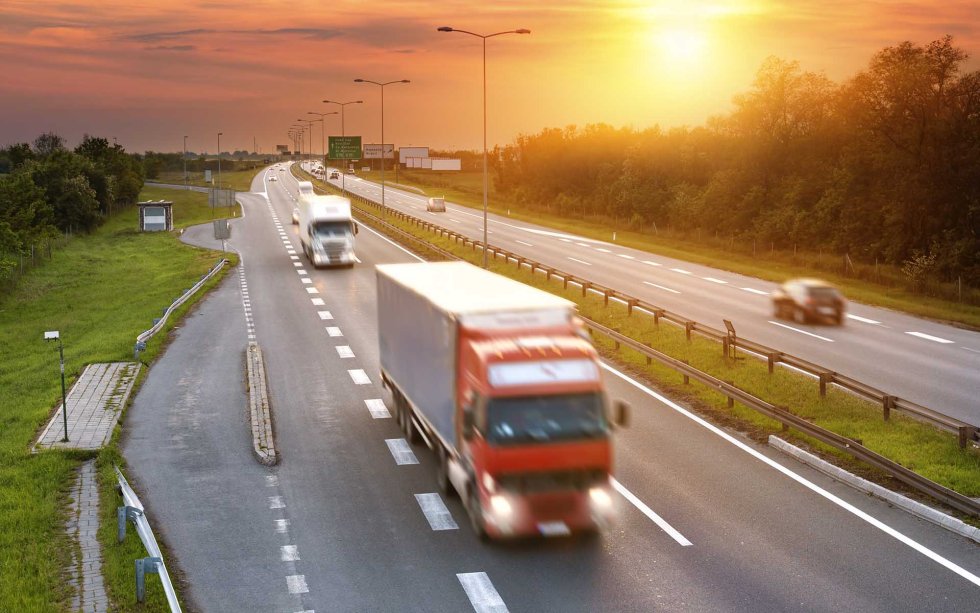Blockchain technology is in the process of revolutionizing the FinTech, real estate, and other industries, but it is also prepared to disrupt the supply chain. The shipping industry, while it keeps the global economy afloat, is riddled with inefficiency that directly impacts businesses and consumers. Shipping needs to move forward – so blockchain is just the push it needs.
A Bit of History
Before looking to the future, it’s essential to examine the past. Decades ago, trains were the go-to method for relocating goods. Railroads are stationary, so it was easy to track their comings and goings as well as load them with vast amounts of cargo.
The interstate highway, however, ushered in a new era of shipping. Though trucks have smaller capacities, they are much more flexible when it comes to their destinations. So long as there is a road connecting two points, a truck can travel between them, and there can be numerous trucks driving simultaneously.
An abundance of trucks is much more challenging to track than trains, though. Rather than suffer through sluggish communication, brokers arose to oversee the whole process. Unfortunately, freight brokerage is a business with high margins, so brokers are incentivized to schedule as many shipments as possible (often connecting the cheapest shippers and carriers) without regard for pragmatism. The field is also very centralized, so brokers can get away with impractical bookings because they have access to information that shippers and carriers do not.
Thus was born the trucking industry’s inefficiency. According to the Environmental Defense Fund, an estimated 15 to 25 percent of trucks on US roads are empty at any given time. For non-empty miles, trailers are still 36 percent underutilized. Not only does this create delays in transporting products, it means that capturing even half of the unused capacity would reduce greenhouse gas emissions by 100 million tons per year. Trucking needs intervention, so a company named Fr8 Network is prepared to reshape its future.
What Blockchain Technology Can Do
Blockchain technology is inherently decentralized, making it the perfect tool for dispersing previously esoteric information. To address this need, Fr8 Network created a platform called the Fr8 Board. The company’s whitepaper describes it as follows:
Fr8 Board is a decentralized marketplace for carriers and shippers to coordinate freight transactions through customizable smart contracts. Open to all carriers, suppliers, and brokers, Fr8 Board gives users full visibility into available capacity and pricing data. Smart matching and curation technology presents users with the best options to optimize capacity.
The Fr8 Board initially appears like other online load boards. Participants create profiles detailing their identities and needs – but thanks to blockchain, all information is completely transparent. Users can then access relevant data regarding prices, payments, locations, reputations, load sizes, and more.
One of blockchain’s key features is removing the need for intermediaries. With Fr8 Board, brokers won’t be eliminated, but their duties will change to more representational roles instead of go-betweens. Similar to how ride-sharing services like Uber allow drivers to search for jobs in any area and claim the ones they want, Fr8 Board connects suppliers and carriers directly. Drivers can search for jobs, drive the distance, and then search for new jobs in the drop-off area, so vehicle capacity is not empty for the return trip.
Holding Actors Accountable
Because blockchain creates a public ledger that records all transactions made through its system, suppliers and carriers will have constant access to their complete payment histories. Parties can quickly settle matters regarding operations, discrepancies, or disclosure disagreements. Information is never stored in one place, either, so blockchain’s decentralized architecture deters potential hackers.
Users won’t have to deal with fiat money, either. Fr8 Network’s platform will employ a native cryptocurrency called Fr8 Tokens, which participants can use to make exchanges and set up as “stake” for successful completion of contracts. Fr8 Tokens are ERC20-compliant and enact penalties in any event someone attempts to commit fraud.
The Fr8 Board also hosts an intricate rating system. When contracts are finished, shippers and carriers can rate one another based on performance. With reputations publicly displayed, parties are incentivized to ensure timely pickups, deliveries, and payments, along with complying with safety regulations. The Fr8 Board aggregates these performance reviews and transactional data with a proprietary algorithm to create users’ cumulative Fr8 Ratings, which improve trust across the industry and can reallocate income to the most reliable companies.
Blockchain technology has evolved far beyond its Bitcoin origins. With its unique transparency, Fr8 Network is prepared to shape the future of the entire overland shipping industry.
Do you think that blockchain technology will revolutionize the shipping and supply chain industries? In what areas does Fr8 Network offer the greatest benefit? Let us know in the comments below.
Images courtesy of Shutterstock, Fr8 Network
